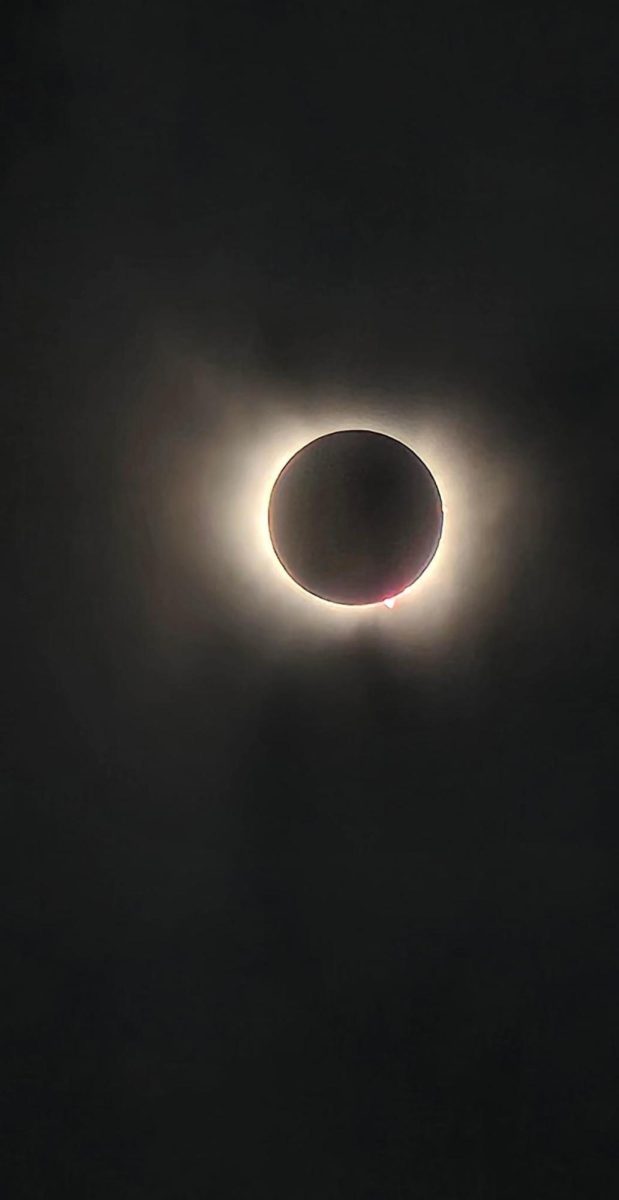On April 8, science fans and space fanatics alike watched the skies to see the moon cross in front of the sun. Even non-enthusiasts bought special glasses to get a chance to see this rare phenomenon. All across the nation people were joined by one incredible event: a solar eclipse, but Pleasant Valley students missed out on the major astronomical event.
This event had a massive draw on people across the globe. Highways crawled with traffic and airlines were completely booked by people trying to see the eclipse in complete totality. The experience was in high-demand.
Educators should see this event as a prime opportunity for learning. Such an occurrence has a large scientific impact and cultural impact, and it should be schools’ responsibility to educate the student population on such events.
Many teachers, students and even some administrators at the high school went outside in the afternoon during class times for the opportunity to view the eclipse. Some students shared glasses with friends, some teachers had a couple to pass out and some students looked through their phones to see the sliver of the sun in the sky.
Physics teacher Ian Spangenberg commented on the significance of the eclipse.
“Is the eclipse going to save someone’s life? Probably not, but it does hold a significant cultural and social significance with people… People are drawn to it because such a large event reminds people that they are a part of something larger than themselves,” he said.
But not all students had the chance to see the event.
Some of the physical education teachers emailed administration asking for permission to take students outside during the eclipse period. It is not uncommon for gym classes to spend time outside on a typical day, but administration denied the request as it would be unhealthy for students to look at the sun without certified eclipse glasses.
Despite the denial for permission to go outside in the gym classes, many students still got the opportunity to experience the solar eclipse, but the lack of attention given by the school district towards the eclipse brings forward a concern regarding the appreciation of sciences and incorporation of natural learning in the school environment.
Does the lack of proactivity on part of the school district demonstrate a degree of disregard for the natural sciences?
Senior Addison Bailey traveled to see the eclipse in full totality. “It was such a life changing experience. I just wish I didn’t have to get behind in school in order to do it,” he explained.
The eclipse would have been a perfect opportunity to plan lessons and experience the event as a school. Embracing the natural phenomenon could have led to a great district wide day. Other school districts offered half days or even gave students a long weekend to make viewing the eclipse an option. If the district couldn’t allow the opportunity for students to view the eclipse during the school day, opting to move one of the scheduled early outs for the month to the day of the eclipse would still be a better option.
Some students and teachers decided to miss school in order to travel to see the eclipse.
Spangenberg encouraged traveling to get the full experience. “I never really understood the scale of a full eclipse before I got to experience it. I would say if you at all have the option to go see a full eclipse you need to take that opportunity to do so because it is something that I will never forget,” he shared.
Education should include acknowledging the surrounding world and major events. Social studies classes teach students about current political events, and english classes talk about the most moving cultural literature works. An occurrence as impactful as the solar eclipse should be celebrated in school, if it is not then that is a reflection of the school’s values.









